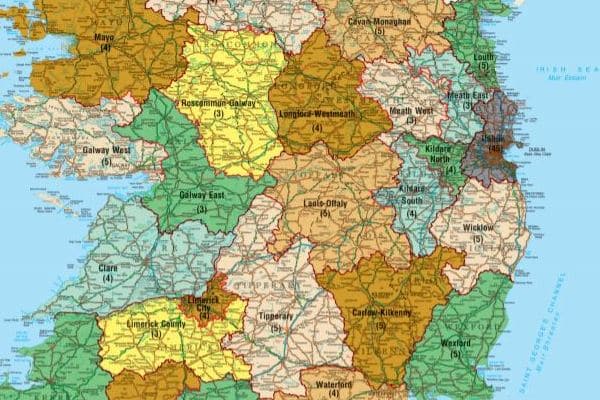
![]()
The Electoral Commission's independent recommendations on the make-up of electoral constituencies for the next Dáil and European Parliament include a raft of new boundaries and changes.
It recommends that the next Dáil would see 174 TDs representing 43 Dáil Constituencies, up from the current 160 TDs in 39 Constituencies.
Variance in Constituency Reviews
Article 16.2.3 of the Constitution states that, “The ratio between the number of members to be elected at any time for each constituency and the population of each constituency, as ascertained at the last preceding census, shall, so far as it is practicable, be the same throughout the country.”
Essentially, this means that each TD in the country, whether they represent people in Wexford, Cork, Donegal or Dublin, should represent the same amount of people, ‘so far as it is practicable’.
Of course it is not possible for every TD to represent the exact same number of people. Therefore, each TD in a constituency would represent more or less than the national average. The measurement of this deviation from the national average is known as the ‘variance’.
This concept is central to the Constituency Review process. See Chapter 5 of the Report for a full outline of this issue.
Each TD in a 174 seat Dáil would represent an average of 29,593 people, down from the current 32,182.
The recommendations also meet the statutory criteria set down for this review:
The Commission took a significant decision that it would work, wherever practicable, to remove or reduce existing breaches to county boundaries, and avoid creating new breaches. Where necessary to achieve this, the Commission decided it would go to variances beyond the 5% variance of the last two reports, and has gone as far as 8.13% variances in this report. In its work the Commission noted that recommending a higher number of seats would have resulted in significant numbers of county boundary breaches and high levels of discontinuity.
Recommended and Existing Constituencies:


Submissions:
The Electoral Commission received 556 submissions from elected representatives, political parties, academics, sports and community groups and interested individuals. All submissions are published on the Commission website www.electoralcommission.ie.
County Breaches: